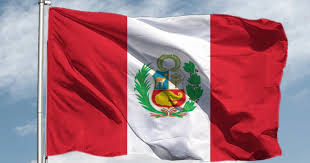
BRASILIA, June 1 (NNN-AGENCIES) — Brazil’s Chamber of Deputies voted Wednesday to curb the powers of the ministries of Indigenous peoples and environment in a setback to President Luiz Inacio Lula da Silva’s climate aims.
If approved by the Senate, the bill would remove the power of the Ministry of Indigenous Peoples to demarcate new reserves, returning that role instead to the Ministry of Justice.
The Ministry of Environment would also, per the bill, lose its oversight over the registration of rural lands — key to monitoring and combating illegal deforestation — as well as its management of water resources.
Lula created Brazil’s first-ever Ministry of Indigenous Peoples upon his return to the presidency this year.
The new powers — now likely to be stripped away — were given to the two ministries when Lula took office January 1. But they were provisional, and needed congressional approval to become permanent.
The vote in the Chamber of Deputies represented Lula’s second environmental setback in 24 hours, after the body voted to approve another measure limiting the demarcation of Indigenous reserves on Tuesday.
That text, which would also need to be approved by the Senate, establishes that reserves can only be on land occupied by Indigenous people at the time of the promulgation of the current constitution, in 1988.
But Lula’s government was able to stave off a complete rejection of the composition of his 37 ministries. That would have seen the total disappearance of the Ministry of Indigenous Peoples and a reversion to the smaller cabinet composition under former president Jair Bolsonaro.
Lula gained international praise following his appointment of Marina Silva – an emblematic figure in the fight against climate change — as head of the Environment Ministry, and for the creation of the Ministry of Indigenous Peoples, headed by Sonia Guajajara.
But that idealism from the beginning of his term has since collided with political reality, as Lula, despite having ceded some ministries and senior positions to center-right parties, was unable to guarantee a legislative majority on all of his proposed changes.
“It’s not that his support base is disjointed, it’s that Lula has no base in Congress” beyond the left and center-left parties that supported his candidacy, said political analyst Leandro Gabiati, director of the consultancy Dominium. — NNN-AGENCIES





